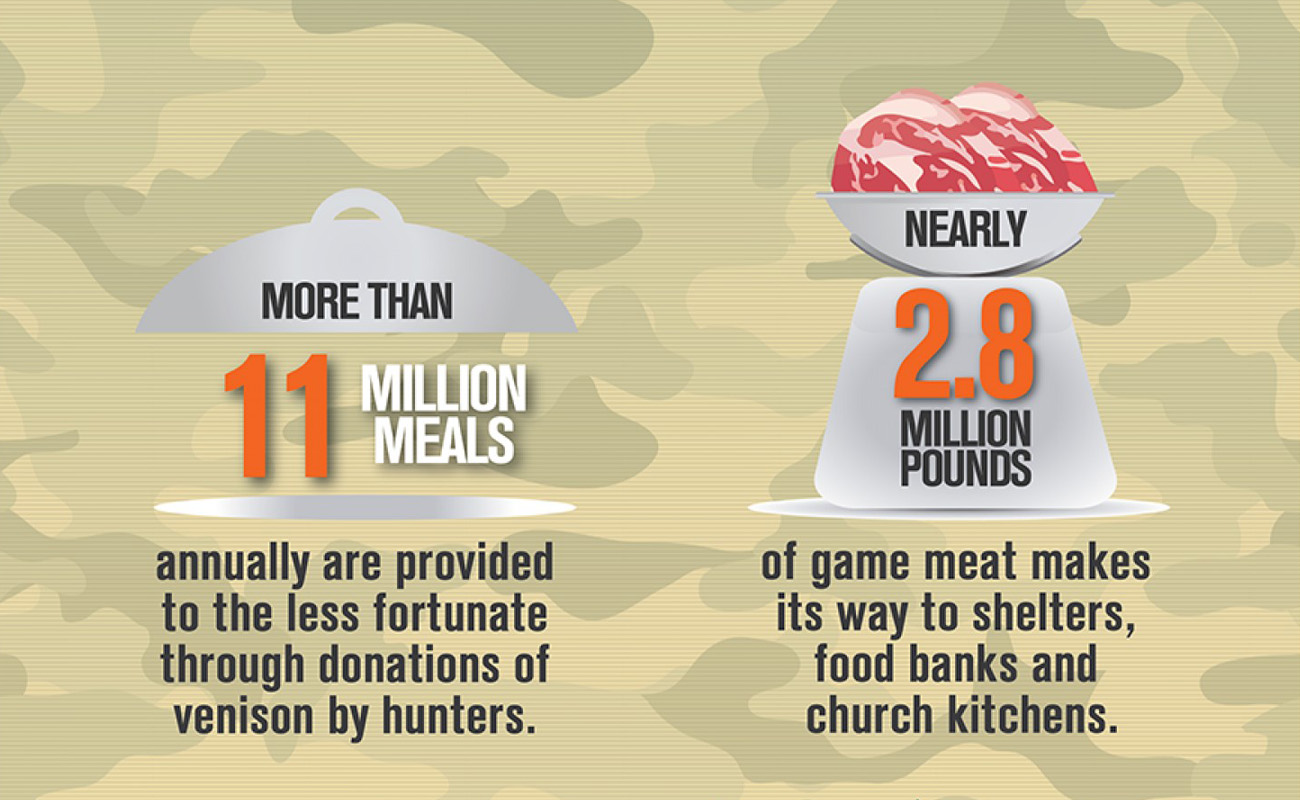Hunters who feed those in need - part I
Posted on November 04, 2014 in Viewpoints

That something is wrong in the management of the hunt, in Italy, is under everybody's eyes. Hunters are frustrated and dissatisfied, animalists as well, the environment suffers, the country is unable to take any advantage of the practice of hunting as a resource to protect the land and produce well-being. Political environment has many faults in this situation, this is the view shared by many hunters. In his anxiety to please everyone, arising from the weakness of his thinking and the fundamentalism of some actors, politics satisfied no one. We believe we can do better. And the best pass through a greater involvement of local communities.
Take the case of the United States. Overseas hunting is an exercise still practiced by about 5% of the population. An article published in National Geographic several years ago, Conserving Hunters, revealed us how the education of the average hunter is the result of a training process which makes him even a more socially acceptable figure. The hunter is seen as a positive actor in the conservation of wildlife, thanks to his role as a selector, and is seen as a resource in the management of the territory in the livelihoods of small communities where hunting is practiced. Often the less prosperous areas take advantage of the presence of hunters - who spend on accommodation, food and so on - to fund the entire community. In this sense, it is useful to consider that hunting calendars are set to facilitate the positive impact of their presence and impose rules that favor integration in the local community; South Dakota comes to my mind, where the pheasant hunting is allowed not earlier than noon in order to favor a longer stay of hunters. In South Dakota, we should not forget also the contribution of farmers who, with a few tricks and without spending to maintain a favorable habitat in the presence of colchicum, made their State immediately associated with pheasant hunting, a feature that develops a massive hunting tourism.
There are also initiatives that make the image of hunters far more than acceptable, as the donation programmes of surplus meat taken by hunting to food banks, activity made possible by a small army of volunteers which ensures that the meat was taken, kept, slaughtered in the proper manner. Called Hunters who care, The Hunters for the Hungry, Hunters and Farmers Feeding the Hungry, Farmers and Hunters, Hunters Helping the Hungry, these initiatives teach the sharing of resources with the less fortunate and proliferate mainly in Midwest and South US (91.8%), whose inhabitants are often apostrophe with the derogatory nickname of red necks. NSSF informs us that, on average, each year, American hunters donate to food banks, parish kitchens and associations 1,300 tons of meat corresponding to 11 million meals (for a total of 6.5 billion $). These proteins (mostly from white tail deers but not limited to) go to enrich, from a nutritional point of view, the tables of those less fortunate.
These hunters lead us to the conception of the traditional cultures hunting, where the hunter is a respected figure, with a relationship with the prey that transcends the material world. In the ancient community, not respecting the prey meant violating a rule, loosing the privilege of the role and the ability to hunt. Unfortunately, living mainly urbanized, we have lost this connection with the natural world. That's why it's important to work on the formation of new hunters and always have respect, as well as for nature, for the community that hosts us.

Do you know Shooting Log Facebook page? If not, why don't LIKE it now?